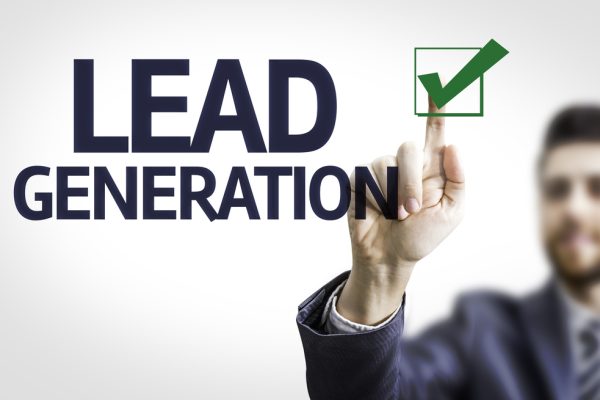Understanding Leads Law: Ethical Legal Lead Generation for Lawyers
Leads law refers to the legal and ethical standards that govern how lawyers generate new clients through marketing and referrals. In the legal industry, client acquisition is a crucial aspect of success. Many lawyers rely on legal leads to connect with prospective clients—but failing to understand leads law can result in ethical missteps and noncompliance.
Legal leads refer to potential clients actively searching for legal services. These leads come from various sources, such as SEO, PPC advertising, referral networks, and lead generation companies. However, law firms must ensure that their lead generation strategies align with ABA regulations and state bar advertising rules to avoid ethical violations.
By implementing ethical and strategic legal lead generation, law firms can attract qualified legal leads while maintaining compliance with industry standards.
What Is a Legal Lead?
A legal lead is a prospective client who has expressed interest in hiring an attorney. These leads typically originate from various marketing channels and can vary in quality, intent, and case relevance.
Where Do Law Firm Leads Come From?
- SEO & Content Marketing – Optimized websites and blogs that attract organic traffic.
- PPC Advertising – Paid campaigns on Google, Facebook, and LinkedIn targeting potential clients.
- Referral Networks – Word-of-mouth recommendations from past clients and other attorneys.
- Lead Generation Companies – Third-party services that provide pre-qualified case leads for law firms.
Qualified vs. Unqualified Legal Leads
Not all attorney leads are equal. A qualified legal lead meets the following criteria:
- They need legal representation immediately.
- Their case aligns with the firm’s practice area (e.g., personal injury, criminal defense).
- They meet financial eligibility requirements (e.g., can pay legal fees or qualify for contingency representation).
Firms that focus on qualified legal leads improve their conversion rates and reduce time spent on low-value inquiries.
What Is Leads Law & How Does It Apply to Legal Lead Generation?
Leads law refers to the legal and ethical guidelines governing how law firms acquire and use legal leads. Since lawyers operate under strict advertising and client solicitation regulations, they must ensure their lead generation strategies comply with legal industry standards.
Key Legal & Ethical Considerations
- ABA Model Rules on Legal Advertising – Lawyers must follow ethical rules regarding lead generation and advertising.
- State Bar Regulations – Each state has specific guidelines governing lawyer marketing and legal lead generation.
- Consumer Protection Laws – Legal marketing must be transparent and non-deceptive.
Compliant Lead Generation Methods
To stay compliant, law firms can generate law firm leads through:
- SEO & Content Marketing – Ranking on search engines for legal-related searches.
- PPC Campaigns – Running paid ads targeting specific legal services and locations.
- Ethical lead generation services that follow ABA guidelines.
Firms that ignore leads law risk facing ethical violations, reputational damage, or disbarment.
Best Practices for Lawyers & Law Firms Using Legal Leads
1. Qualify & Screen Legal Leads
Use intake forms to collect case details, urgency, and financial criteria. Filter out unqualified leads early in the process.
2. Track & Optimize Lead Sources
Utilize CRM tools to track performance by channel. Focus your marketing spend on SEO, referrals, or PPC sources that deliver qualified leads.
3. Respond Quickly to Legal Leads
Firms that respond within 5 minutes have significantly higher conversion rates. Set up automated email and SMS follow-ups.
4. Work With Compliant Lead Generation Providers
Choose providers who adhere to ABA and state bar rules. Avoid services that sell direct case referrals or engage in fee-splitting.
Why Leads Law Matters in Legal Lead Generation
Understanding leads law is essential for any lawyer or law firm aiming to grow their practice through digital marketing. As more firms compete for clients online, the need to follow ethical lead generation strategies becomes even more important. Staying compliant with ABA guidelines, state bar rules, and consumer protection standards ensures you’re not only protecting your firm but also building trust with potential clients.
Ethical lead generation for lawyers isn’t just about avoiding penalties—it’s about positioning your firm as a trusted and professional choice in a crowded legal market.
Grow Your Firm with Ethical Legal Lead Generation Strategies
If you’re looking to generate qualified legal leads without compromising your professional integrity, now is the time to take action. At Legal Brand Marketing, we specialize in lead generation for lawyers that aligns with both ABA and state bar advertising rules.
Our compliant, performance-driven strategies help attorneys and law firms attract the right clients—consistently and ethically.
Ready to scale your law firm with compliant legal lead generation? Contact Legal Brand Marketing today to get started.
FAQs About Leads Law and Legal Lead Generation
1. What happens if a lawyer violates leads law?
They risk bar complaints, fines, reputational harm, or even disbarment.
2. Can lawyers pay third-party companies for leads?
Yes, but only through compliant lead generation services that avoid unethical practices like fee-splitting or unsolicited referrals.
3. Is it legal to advertise legal services online?
Yes, as long as advertising follows ABA Model Rules and is not misleading.
4. Are all lead generation companies compliant?
No. Choose providers that adhere to state and national legal advertising standards.
Key Takeaways: What Lawyers Need to Know About Leads Law
- Leads law governs how law firms ethically acquire clients through marketing.
- Legal lead generation must comply with ABA and state bar rules.
- Qualified legal leads help lawyers focus on cases with higher conversion potential.
- Best practices include fast response, lead screening, and partnering with ethical lead providers.
- Avoiding compliance issues ensures long-term success and reputation protection.







